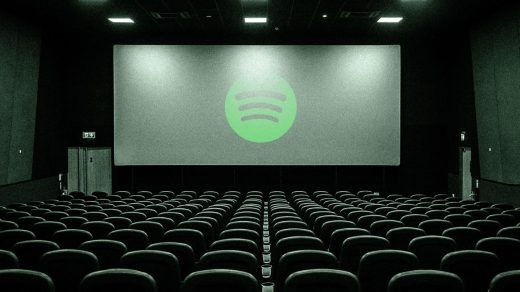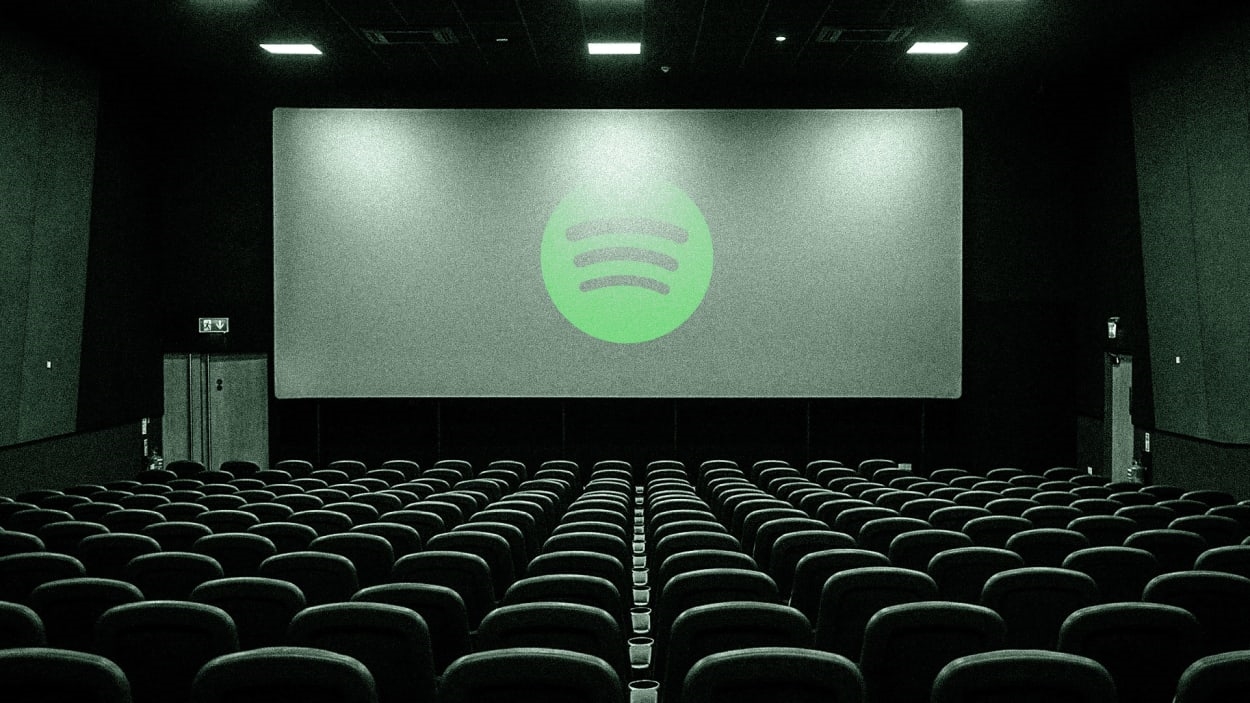People are apparently using Spotify’s video podcast tool to illegally pirate movies
Spotify subscribers have long used the streaming service to play their favorite movie’s soundtrack. But some now are apparently using the service to watch actual movies, too.
Several TikTok users posted videos within the past week showing how anyone on Spotify could access films, such as Minions: The Rise of Gru, Pinocchio, and Mean Girls. The clips suggest that the TikTokers were as confused by the discovery as anyone else, with captions like, “Okay but since when could I watch movies on Spotify?” and “What on earth is happening to Spotify?”
The answer, of course, is piracy: It seems Spotify users are posting full movies through the video podcast tool.
TikTok users reported that the videos did indeed play in full on Spotify. The streaming music giant, for its part, has since cracked down on the pirated content (at least, those films that went viral through TikTok). Most, if not all, of the films appeared to be removed by the time Fast Company attempted to find the streams on Monday. That’s not the say the problem has totally gone away: Instead of the full movies, several “podcasts” showed up that linked to pirated movie websites. It’s unclear how long the direct movie streams were available to watch on Spotify.
“IP infringement is an industry-wide issue that we take very seriously,” a Spotify spokesperson told Fast Company. “Any content that is provided to Spotify that infringes on third-party rights will be removed.” The spokesperson added that the company “invests heavily in processes to detect and remove such content.”
The spokesperson didn’t immediately respond to a request for more information on when the company started taking down the videos.
Piracy issues aren’t the streamer’s first brush with content-related growing pains. Earlier this year, several artists and creators boycotted the platform for its airing of The Joe Rogan Experience, a podcast that has been criticized for spreading COVID-19 misinformation. The company has since added content advisories to any material that mentions COVID-19 and released its content policies.
Spotify introduced its video podcast tools in 2020 as it strengthened its bet in the space that could push the streamer past music and boost its profitability. The company has since rolled out video more broadly, allowing for more creators in different countries to use the feature, which it hoped would help fend off the growing threat of YouTube.
Even as platforms and governments crack down on privacy, access to free content is still readily available, due to the impossible logistics of policing each and every free video. Oftentimes, it’s a game of Whac-A-Mole: One site or user gets taken down, another pops up. Global online piracy costs the U.S. economy at least $29.2 billion in lost revenue each year, according to a 2019 report from the Chamber of Commerce.
It’s difficult to get consumers to care about piracy in the short term, since they’re getting the content they want for free, says Michael Smith, an information technology professor at Carnegie Mellon University. “As we know, when you get something for free you’re less likely to pay for it,” he told Fast Company. Research shows that piracy significantly hurts movie sales. The hampered sales lead studios to make different types of movies as well as subsequently release fewer pictures.
The issue of piracy is one that’s familiar to Spotify: Many credit streaming-music platforms with curbing the practice by democratizing access to music through ad-supported services.
(25)



